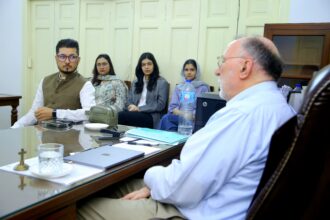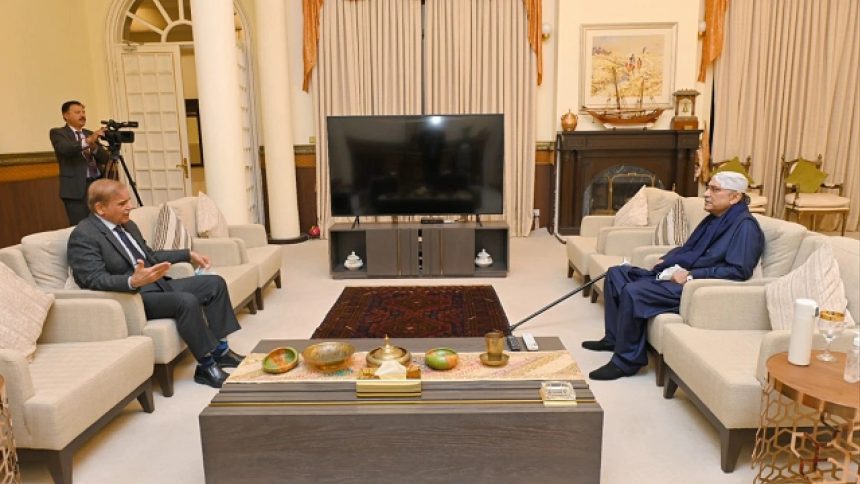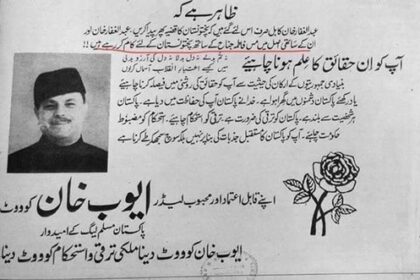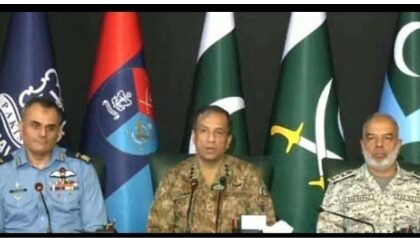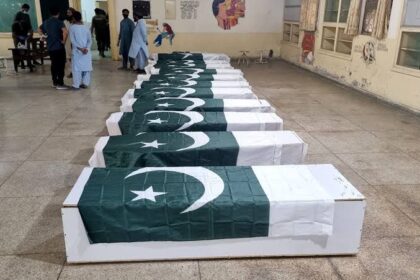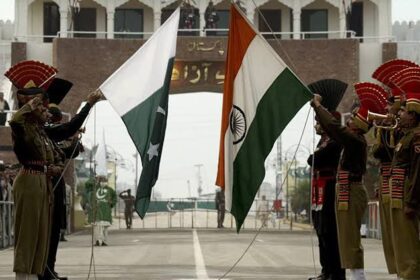President Asif Ali Zardari and Prime Minister Shehbaz Sharif stressed the need for justice, tolerance, dialogue and understanding to bring about lasting peace, and hoped to elicit a global cooperation in this regard.
In their separate messages to commemorate the International Day of Peace, the two leaders aligned themselves with the international call to promote peace, stating that peace was not dream but an urgent need that could only be achieved by resolving the existing issues.
In his message, Shehbaz Sharif referred to the Jammu Kashmir issue as one of the main obstacles in the way of regional stability, and said that lasting peace would remain a distant dream if longstanding regional issues remained resolved. He said that peace and justice could not be separated, as he implored world leaders to pay attention to the plight of Kashmiris who had been demanding justice.
He explained that only way forward for Kashmir was through an impartial plebiscite. In the light of the UN Security Council resolutions, he said that Kashmiris should be given the right to determine their own future. Extending his message of peace beyond South Asia, he highlighted the current crisis in the Middle East.
He expressed solidarity with the oppressed people of Palestine and denounced the state aggression they have endured for decades. He made it clear that much like in Kashmir, sustainable peace in the Middle East could only be achieved by respecting international law and the aspirations of the people of Palestine.
The prime minister said that the world needed to embrace peace as a common goal, built on values of tolerance, compassion, and cooperation. He said peace was not just the absence of war, but the active promotion of understanding among diverse communities. “By working together, we can build a peaceful tomorrow for our future generations,” he said.
President Asif Zardari’s message took a slightly different angle, saying there was a need for promoting a culture of peace, tolerance and respect for human dignity. “Peace is not just about resolving conflicts, but also about creating an environment where all people can live in harmony and their basic rights are respected,” he said.
Pointing to the theme “Cultivating a Culture of Peace,” he said that peace had to be ingrained in society’s values. He stressed the need for working together to create a peaceful future and a better world where the future generations could live in peace and harmony. He expressed concern over the ongoing conflicts in several regions, where their respective oppressors had unleashed a reign of terror.
He said that geopolitical tensions had threatened global peace and security, and called for an immediate international response. He criticized what he described as a misallocation of global priorities. He said that world leaders had been preoccupied with disputes and conflicts, and had not focused much on addressing the more fundamental challenges facing humanity, such as poverty, inequality, and the denial of basic rights.
The president stressed that peace and progress were intertwined, asserting that development and prosperity could not be achieved in the absence of peace. Making a humanitarian appeal, he urged the global community to focus on resolving the root causes of sufferings rather than engaging in or perpetuating conflict.



